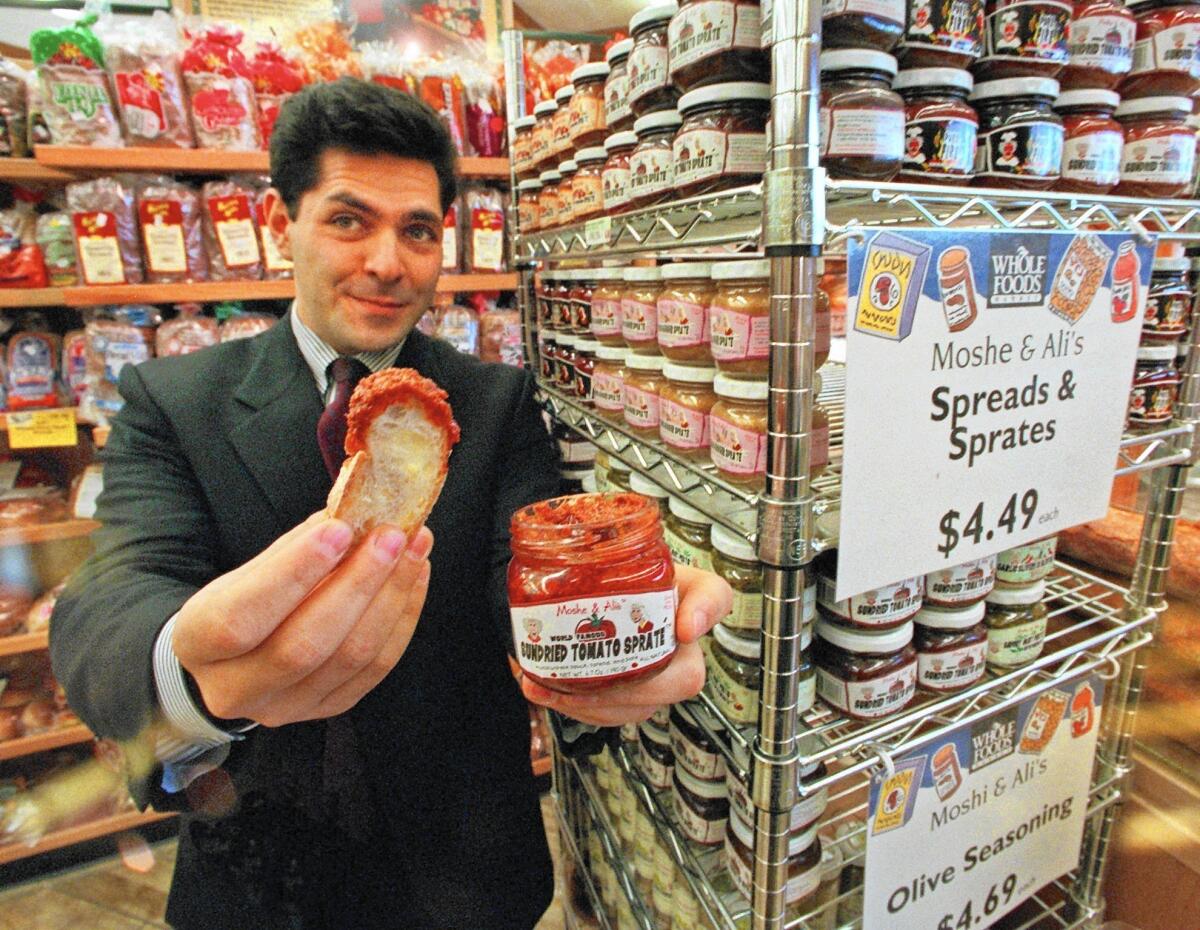Kind Healthy Snacks founder describes his long slog to success

One day, when he was 25 years old, Daniel Lubetzky lay on his bed in his studio apartment and realized his life was becoming intolerable.
A tower of Dead Sea soaps, piled high by his bed, threatened to collapse on top of him. His path to the bathroom was blocked by stacks of sun-dried tomato spread, also imported from the Middle East, which he could not sell because they did not taste quite right and their lids leaked oil.
Every day, as he pounded the pavement of Manhattan, in a new city where he had few friends, shopkeepers told him his products would not sell.
Two decades later, Lubetzky is basking in his hard-won success.
His New York-based company, Kind Healthy Snacks, sells 458 million fruit and nut bars a year, as shown in a chart in his new book. (There is no graph for profit, though he tells us he was clearing sales of $13 million in 2008.)
And the story of how he got here makes an enjoyable read. Lubetzky does not skirt around the painful details of clueless early entrepreneurship — describing his pricing structure at one point as “insanely dumb” — or the lessons he learned on his long slog to profit.
As the title suggests, “Do the KIND Thing: Think Boundlessly, Work Purposefully, Live Passionately” is also Lubetzky’s manifesto for social enterprise, or what he calls the “not-only-for-profit” company. The book is published by Ballantine Books.
His early business — intended, we are told, to help bring peace to the Middle East — has morphed into Peaceworks, a global business that promotes peace through commercial ventures among Israelis, Palestinians and others.
This is clearly terrific, but Lubetzky’s social evangelism does not make enriching reading. This is largely due to his tone, which suggests a low view of his readers, as if they might never have considered behaving compassionately before.
His description of the importance of empathy, especially, reads like a lesson to robots in human behavior. At times, the only possible response to his self-congratulatory mix of commerce and compassion is cynicism.
When he stops preaching and returns to his own tale, Lubetzky again becomes likable.
As his business flourishes, there is a lot of wise advice about matters from product development to people management. He is endearingly honest about the vicissitudes of his “Starbucks crush” as the coffee chain stocks his bars, removes them and then sells them again.
As he finished writing the book, Lubetzky attended a swanky dinner where he recognized the waiter as the smiley building superintendent who had helped him lug boxes of soap into his apartment building 20 years earlier.
Admitting he had not given the man a thought in years, Lubetzky thanks him in the acknowledgments for his friendliness at a tough time. This note offers a better lesson in how to behave than any of the self-referential piety that precedes it. As ever, the showing beats the telling.
Ridge is an editor at the Financial Times of London, in which this review was first published.






